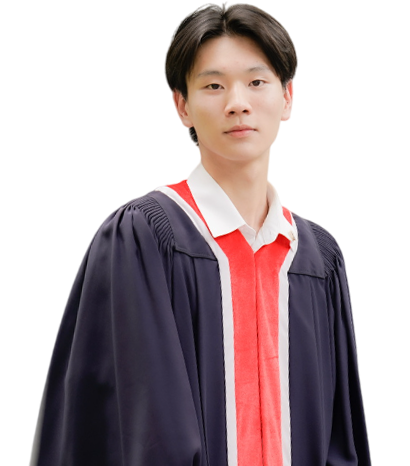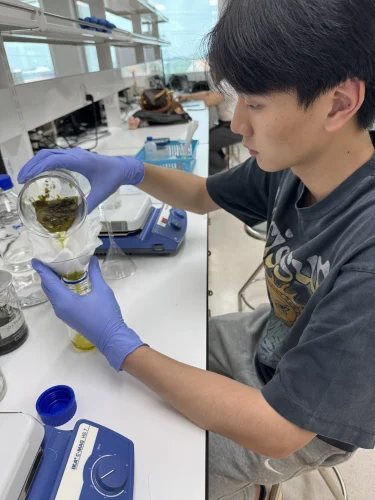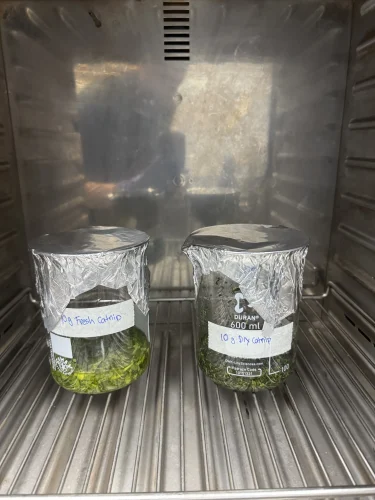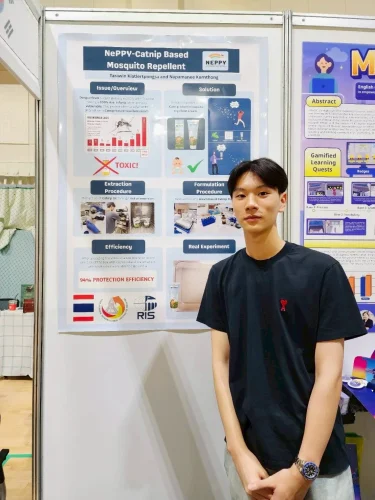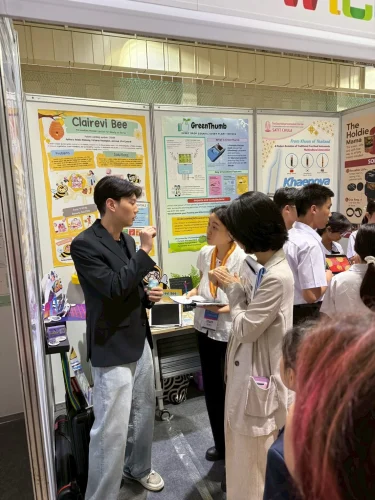NEPPY
- Inventor
Neppy is a natural mosquito-repellent cream formulated from catnip essential oil as a safe and effective alternative to DEET, which can be harmful to children. Through extensive experimentation, I tested multiple extraction methods—including steam and hydrodistillation—before optimizing a process that maximized yield and purity. To validate the product’s efficacy, I conducted chemical analyses and molecular docking simulations that confirmed catnip’s active compounds bind effectively to mosquito odorant receptors. Neppy is now being prepared for nationwide retail distribution in grocery stores across Thailand, offering everyone a non-toxic, sustainable solution to mosquito protection.
Neppy also recently won prizes at competitions: the silver award at WICO 2025 alongside with the silver award and the Canadian special award at iCAN 2025.
Awards


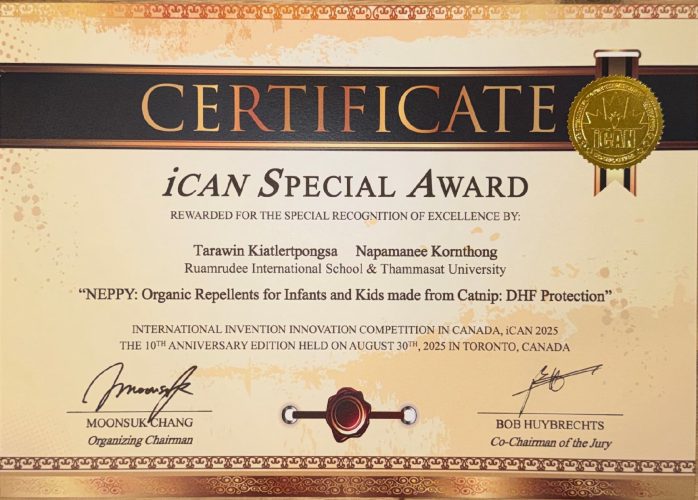
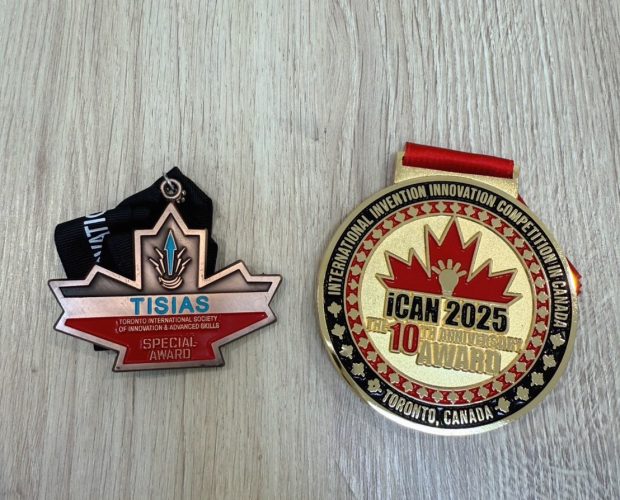
Sunpack // Sunbox
- Inventor
Sunpack is a solar powered box that provides reliable electricity to stateless refugee villages lacking access to national power grids. Originally built to supply light and charge essential devices, the system was later adapted into a portable cold storage unit for vaccines and medicines, enabling safe transport to remote villages. Several units of sunboxes were donated to the Royal Thai army during the Myanmar earthquake and to my grandmother’s rural village. My passion for this project came solely from how my grandma’s village in the mountains still doesn’t have access to electricity today. This project deepened my understanding of how engineering and design thinking can translate compassion into life changing solutions for urgent needs.
This invention, the Sunpack, won multiple awards from multiple international competitions. The Sunpack won the Gold medal and TISIAS special award from iCAN2025, and also won the silver medal at WICO2025.
Awards


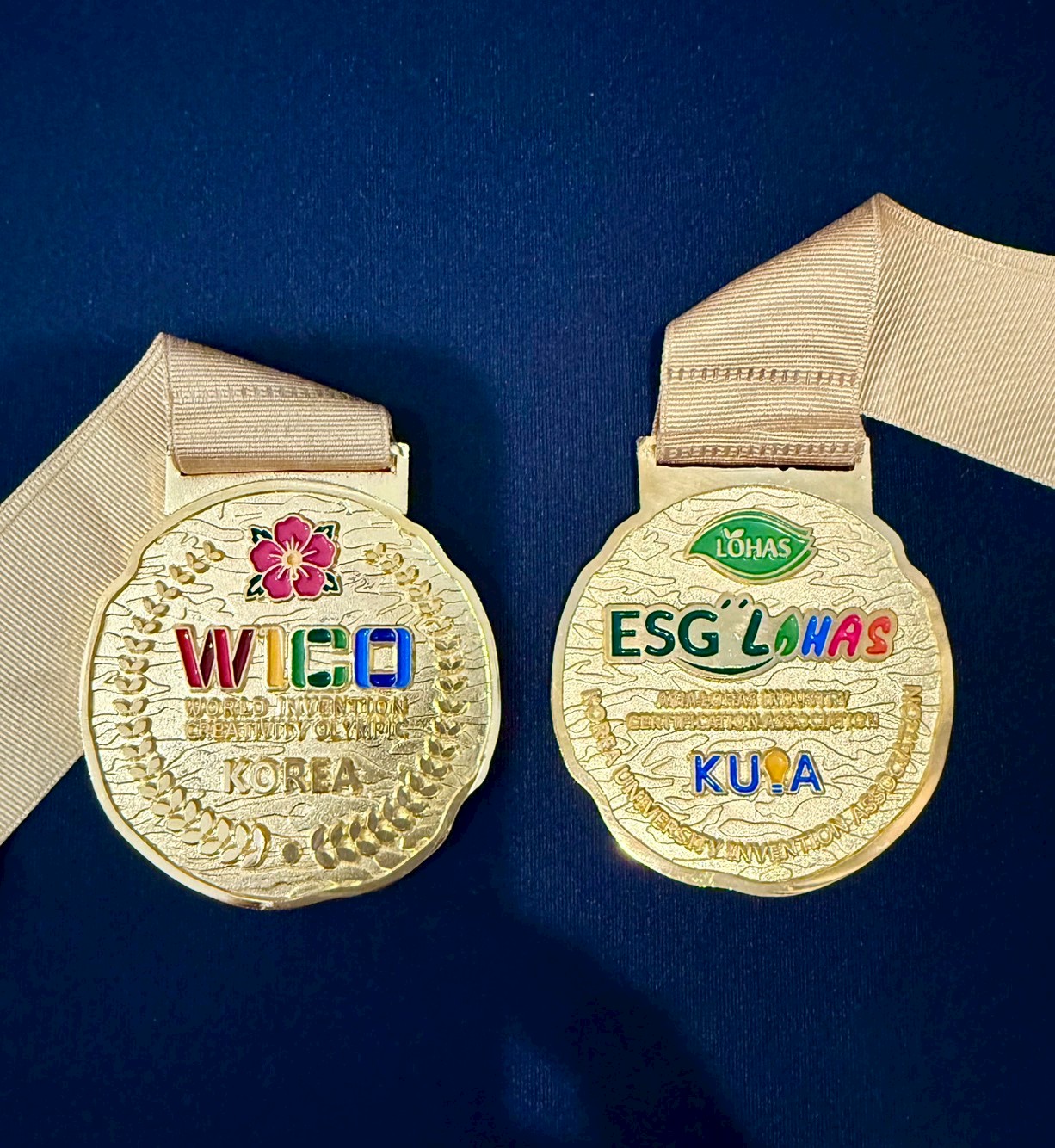




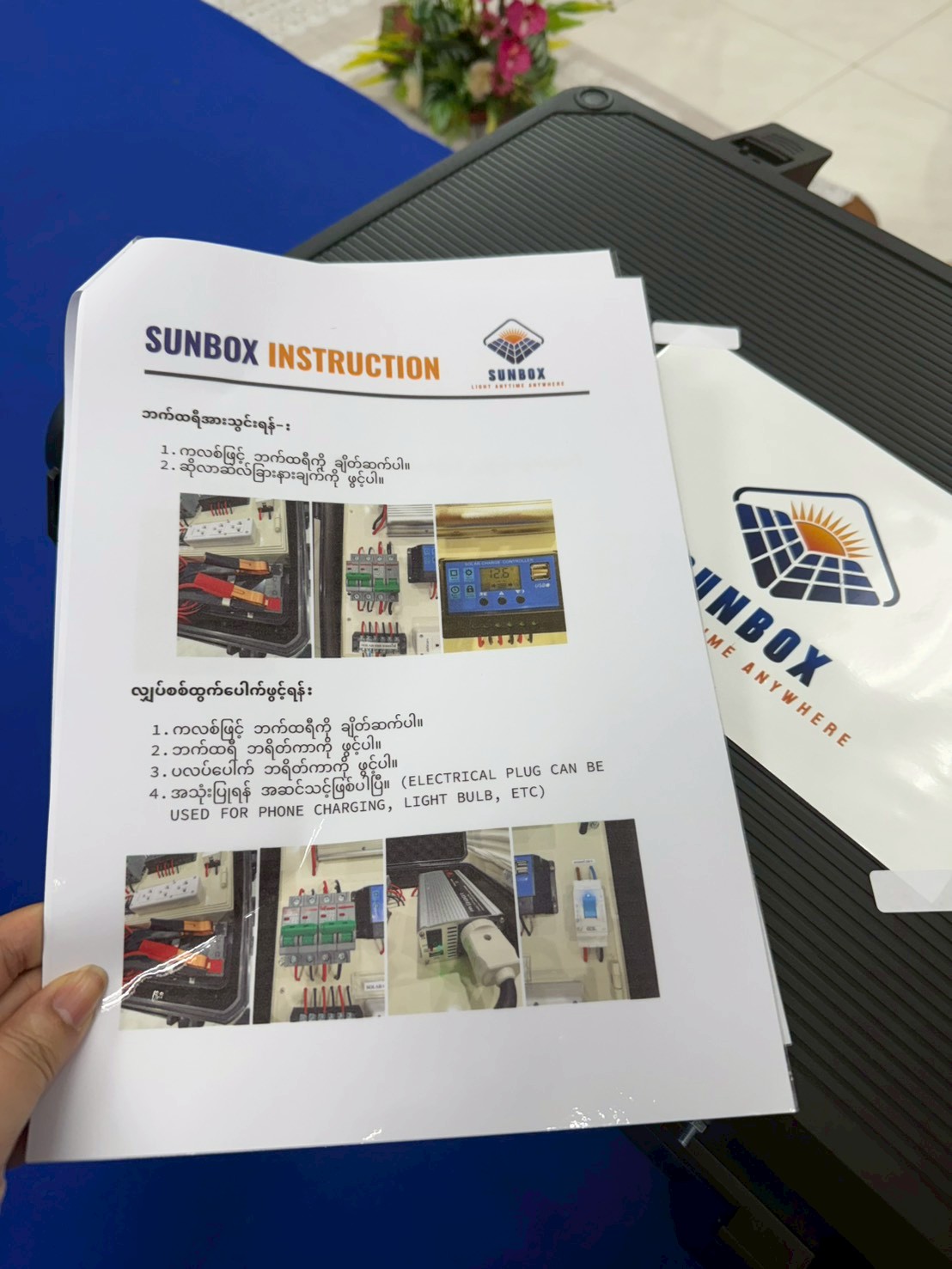



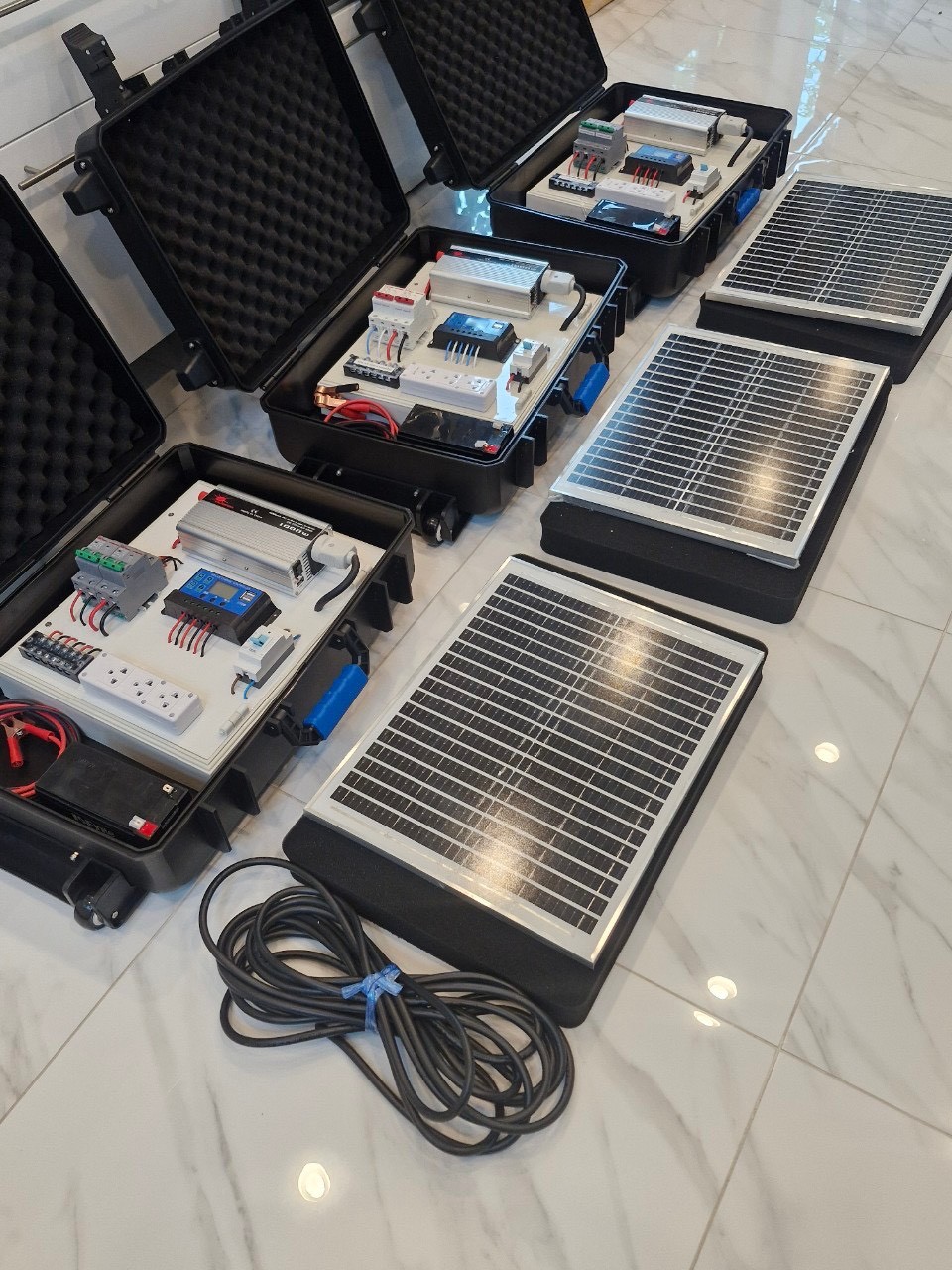
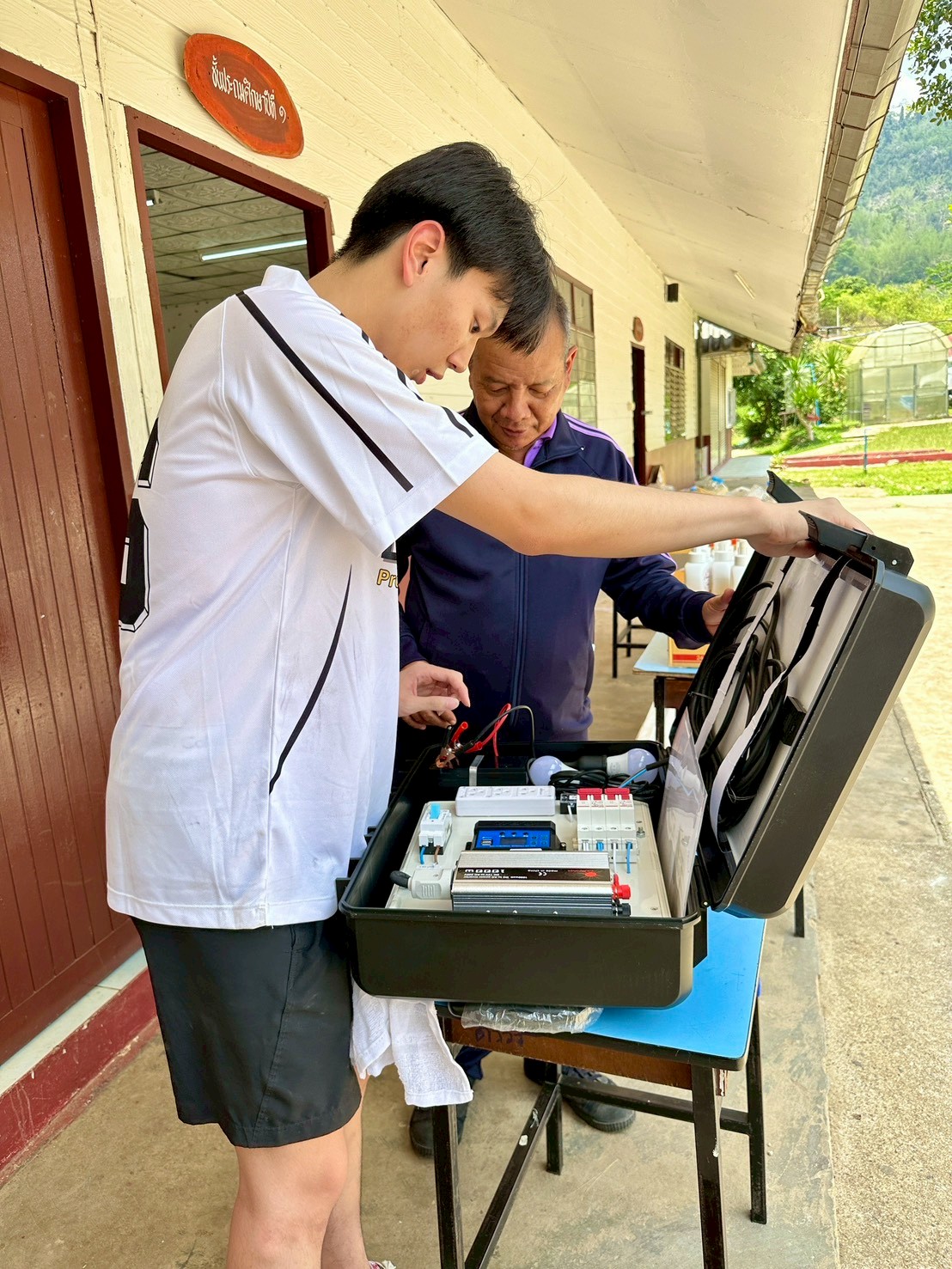

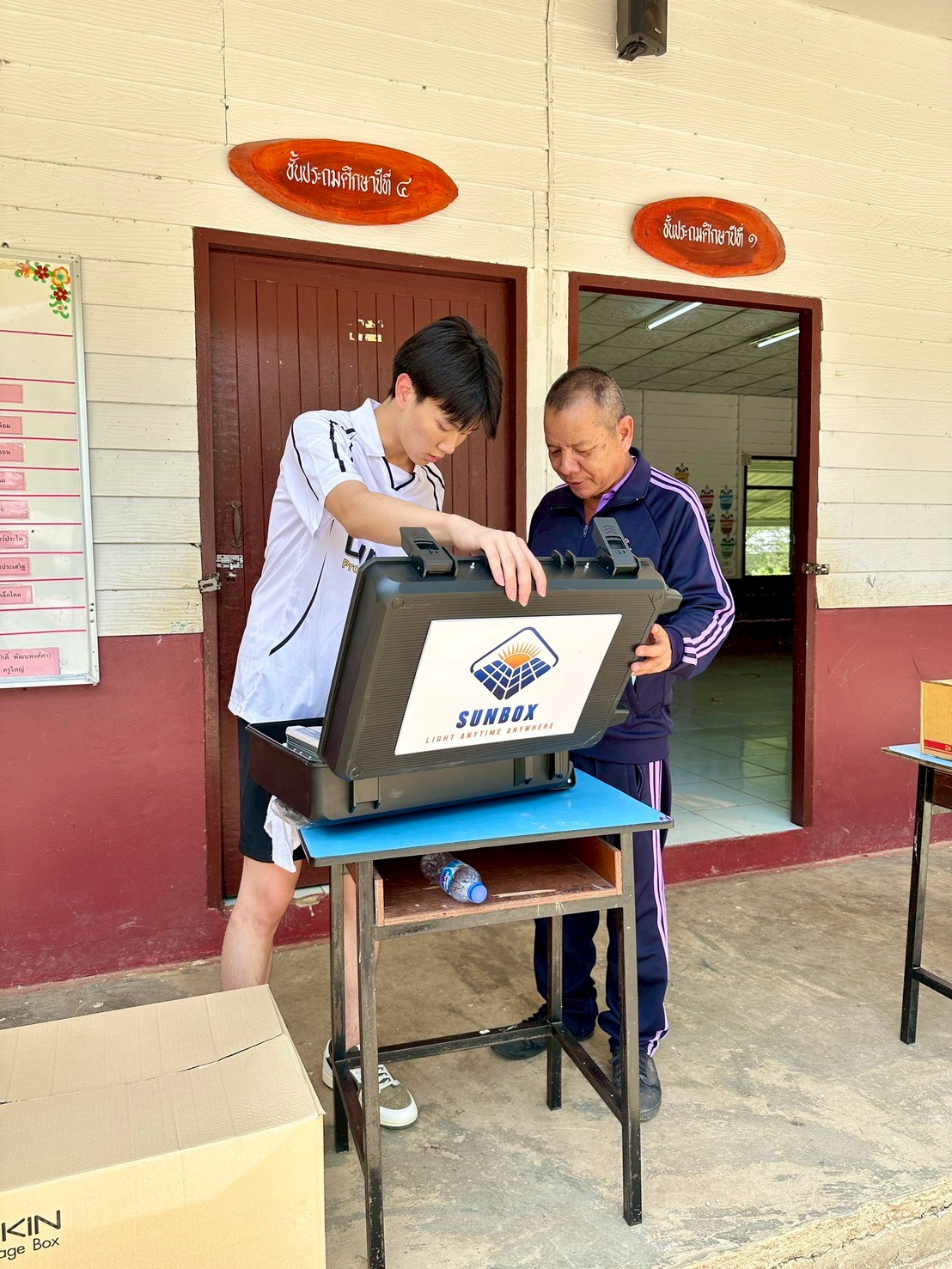
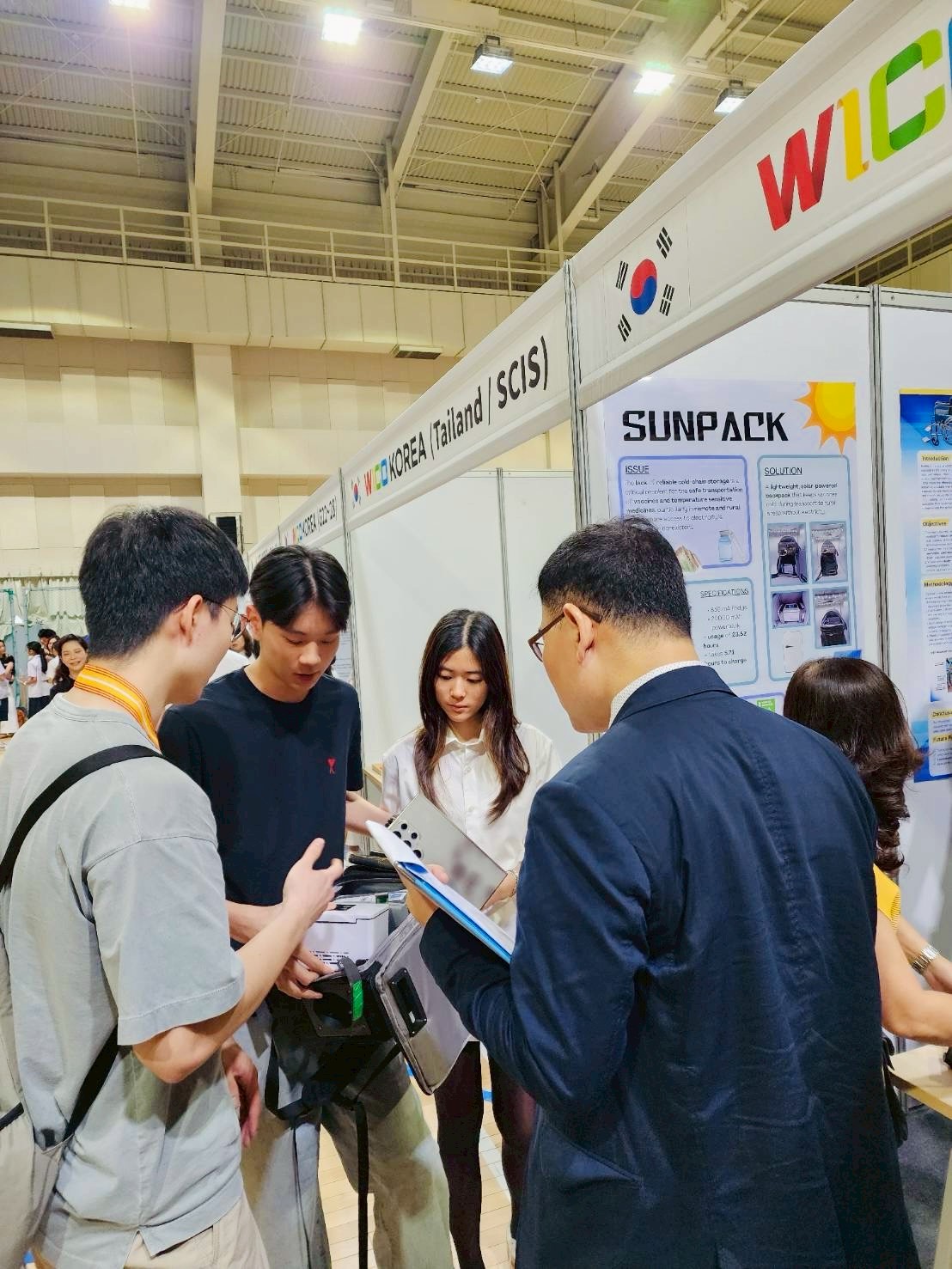


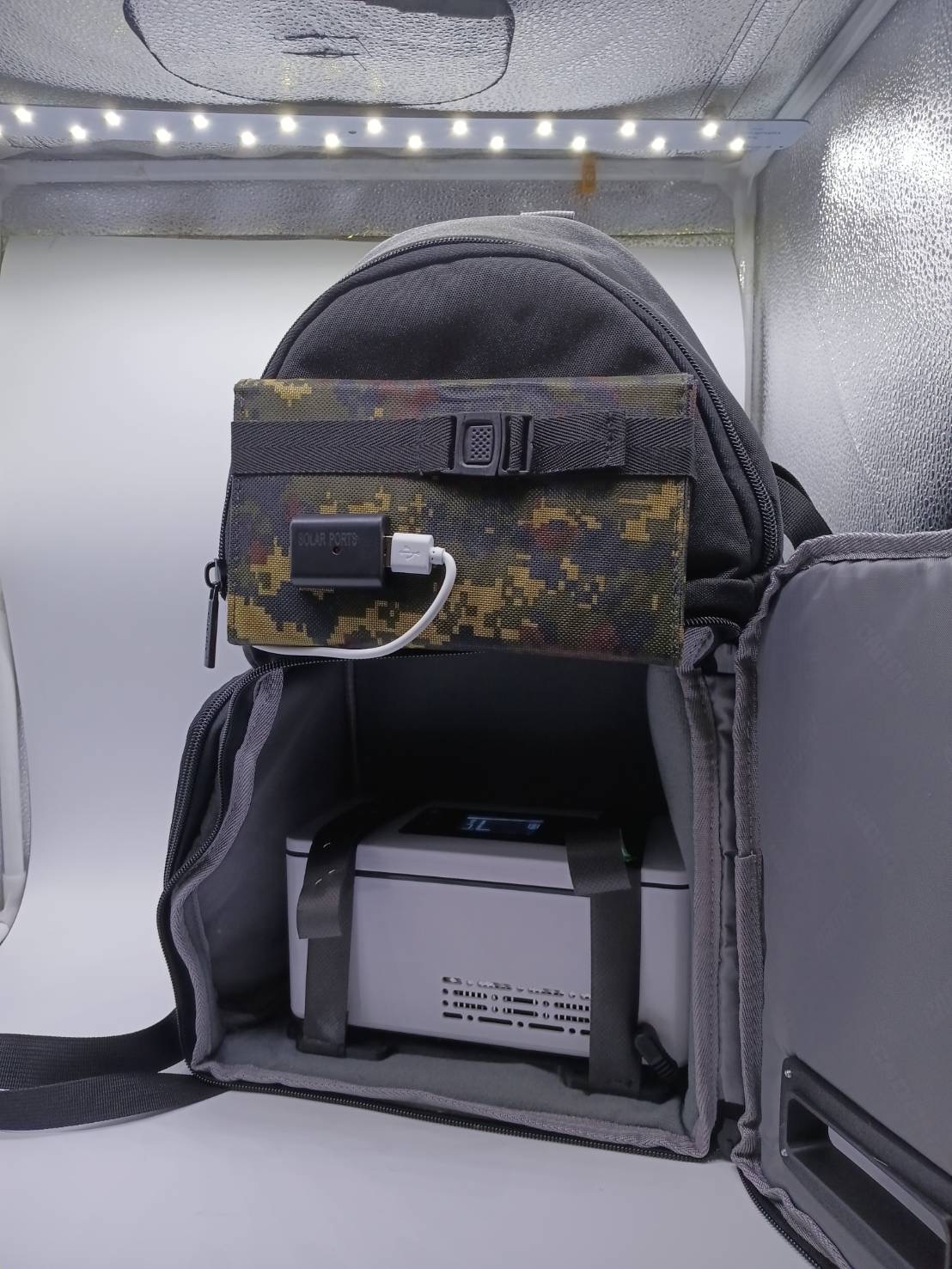



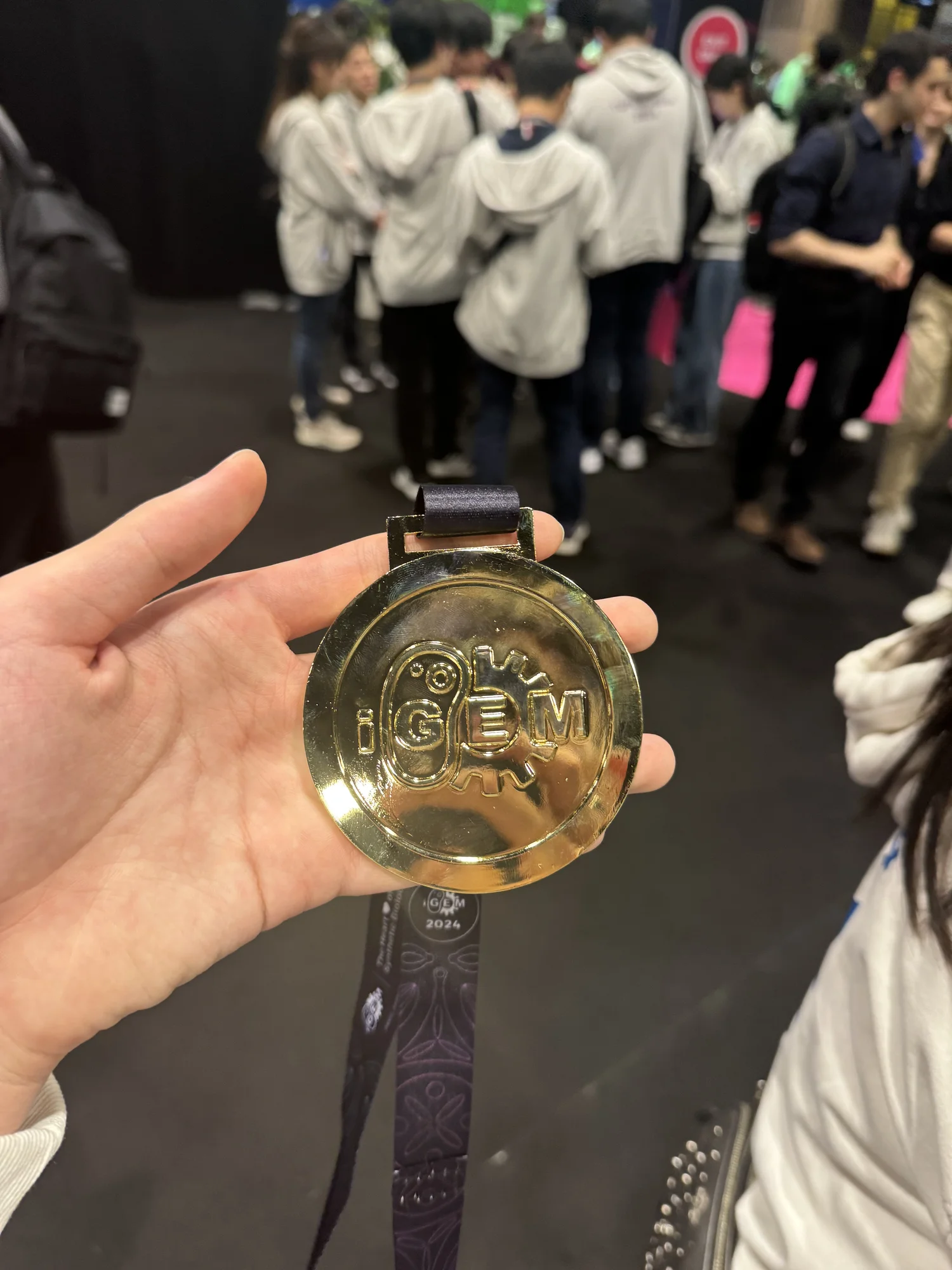
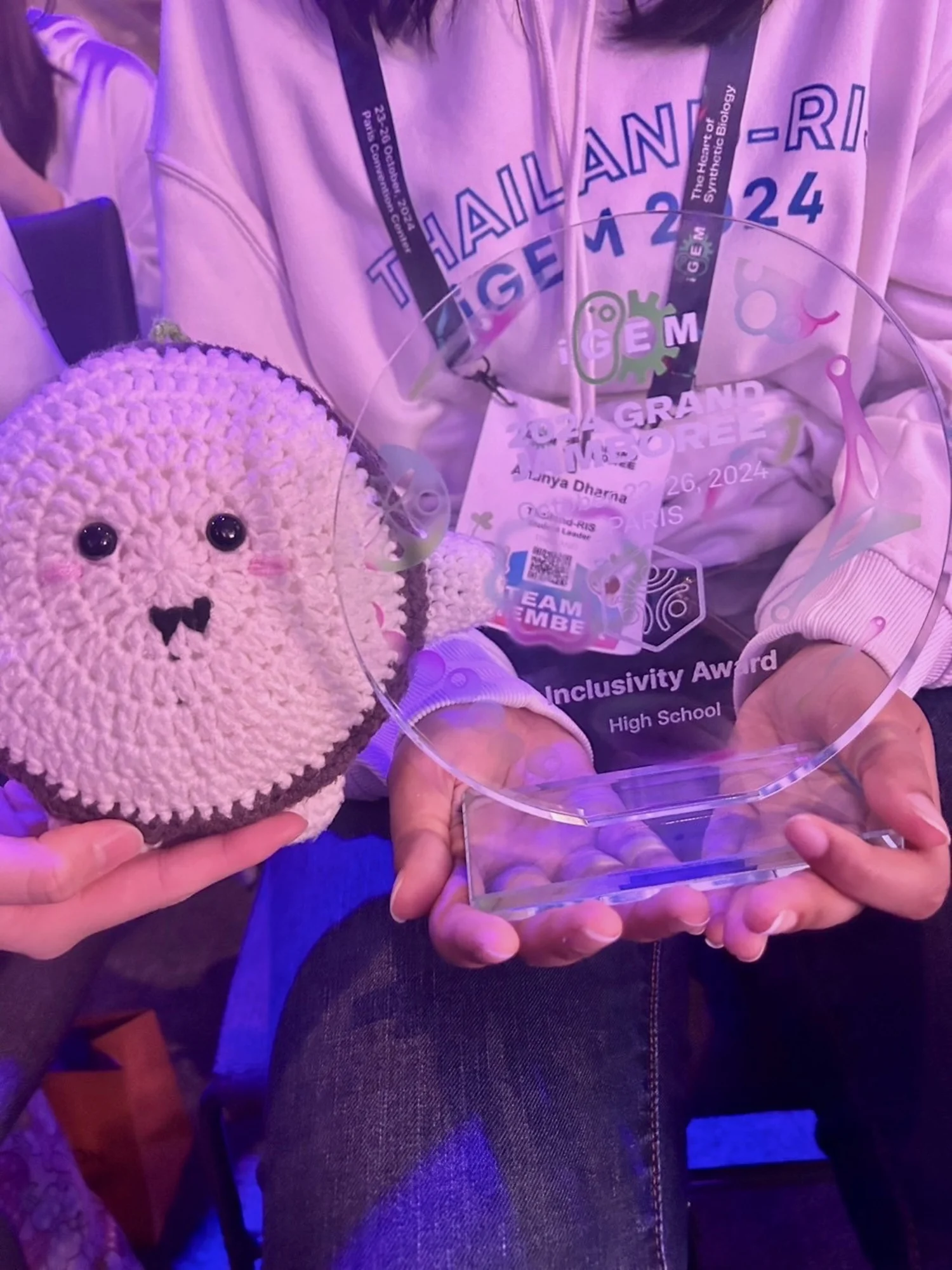
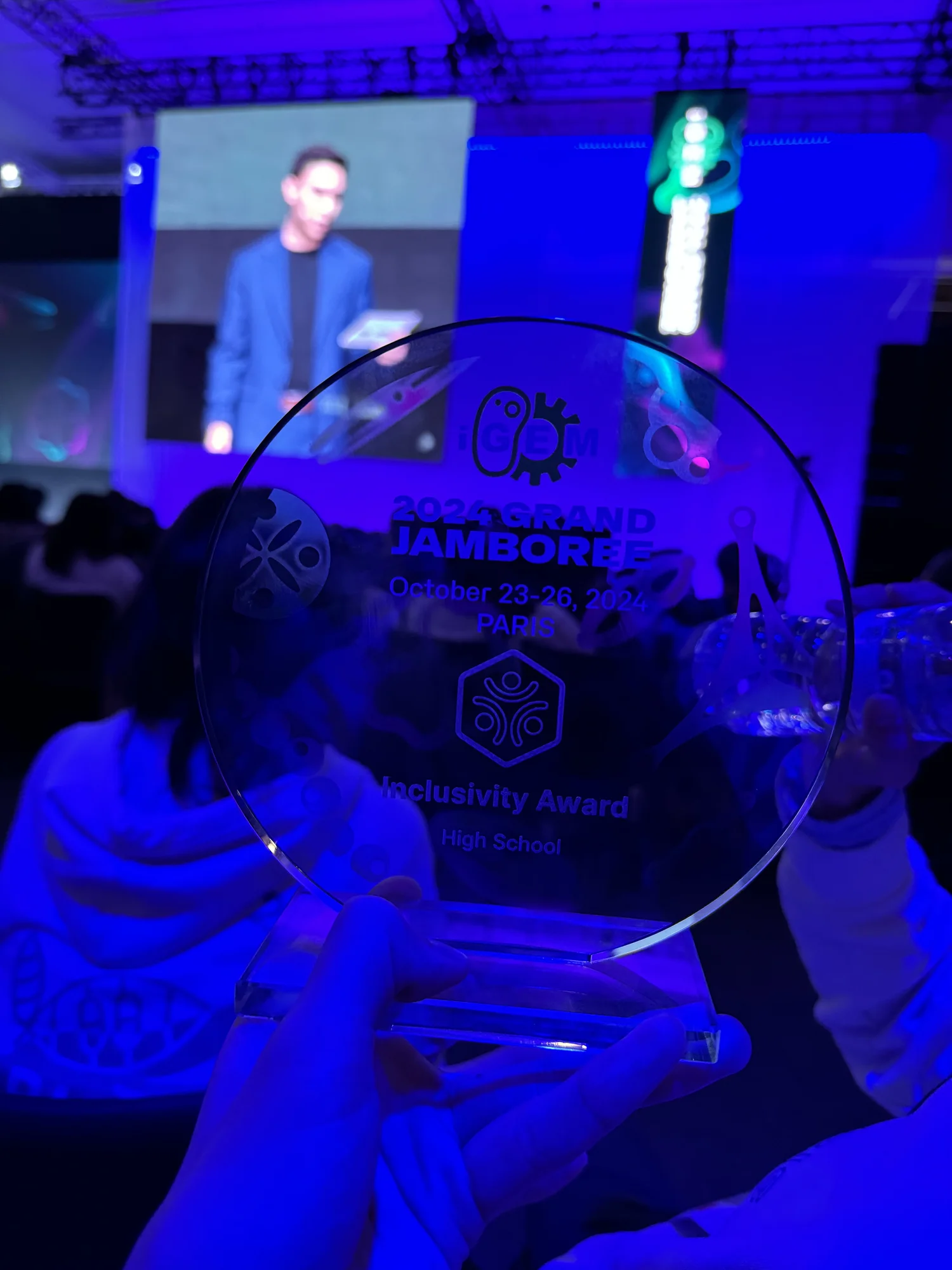
Puerarin Research - iGEM 2024
- Lab Leader
This research project focuses on producing puerarin, a natural compound known to reduce chemotherapy side effects, using Nicotiana benthamiana as a plant-based biofactory. I had the role of lab leader, led the experiment at Chulalongkorn University, where I used agroinfiltration to insert the target gene into the plant and express it successfully. I worked on every stage—from vector design and transformation to growth and compound validation—running multiple analyses such as gel electrophoresis and HPLCs to confirm synthesis. After 2 rounds of analysis tests, we were able to flag the success of our research.
From this research, we won the gold medal alongside with the inclusivity award at iGEM 2024
PETase Research - iGEM 2025
- Lab Leader
This project was initiated to address Thailand’s growing plastic pollution crisis by exploring a biological approach to PET degradation. I researched the PETase enzyme from Ideonella sakaiensis, a bacterium capable of breaking down polyethylene terephthalate, and worked to express this enzyme in Nicotiana benthamiana. Through both stable and transient plant transformations, I aimed to create a sustainable system where plants themselves could degrade plastic waste. By combining molecular biology and environmental engineering, this project represents an early step toward scalable, plant-based solutions for global plastic management and environmental restoration.
WasteBusters
- Co-Founder
Wastebusters is an upcycling initiative I co-founded to reduce plastic waste on campus and promote sustainable reuse. We installed five collection bins across the school to gather used plastic bottles, which were later transformed into functional products such as blankets, t-shirts, tote bags, mosquito nets, and raincoats. These items were donated to two border schools in northern Thailand and an elderly village in Banglamung, turning waste into warmth and care. In addition to that, we also raised funds through plastic awareness to install a water filtration system for a border school in the north of Thailand as well. Through Wastebusters, I learned how design thinking and community collaboration can turn environmental awareness into real, tangible change.
NHS
- Member
The NHS Award honors students who exemplify the society’s four pillars: scholarship, leadership, service, and character—recognizing those who apply academic excellence and community engagement to make a meaningful impact.
The NHS throughout the year, constantly holds events to boost underclassmen’s academics or showcase our pillar of service and community by a variety of activities. We uphold these pillars by constantly showcasing them through actions we do at school: this can be academic wise, community wise, service wise, etc.



Student Council
In student council, I arranged several events, such as the senior lounge, senior trip, and prom, showing me the importance of cooperating as a group and trusting in each other to get things done; working in student council as a member and as a Grade Rep trained me to listen to the feedback of others to best represent their interests.
Varsity Volleyball
- Member
Varsity Volleyball has been one of the most defining parts of my high school experience. As a middle blocker, I learned to read opponents, coordinate quick plays, and anchor our team’s defense at the net. Countless hours of practice and tournaments taught me the importance of timing, communication, and trust—skills that extend far beyond the court.
Through both victories and setbacks, I developed resilience, teamwork, and leadership under pressure. Competing at regional and national levels strengthened my ability to adapt quickly and support my teammates.
Lumenaid
Lumenaid is a non-profit organization dedicated to addressing the lack of electricity in rural communities across Thailand. We have donated multiple solar lamp posts and solar-powered water pumps to remote villages in underserved regions. My main role in this project is to expand the reach and adoption of my invention, the Sunbox—a solar-powered refrigeration and energy unit. The Sunbox has been distributed to every location where Lumenaid has conducted donations and community activities, helping improve daily life and access to reliable energy in off-grid areas.
